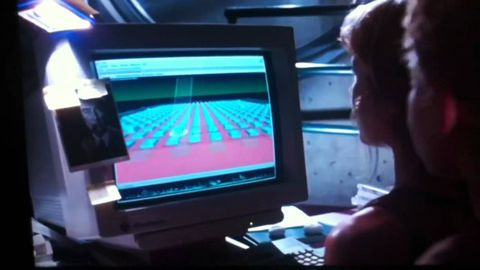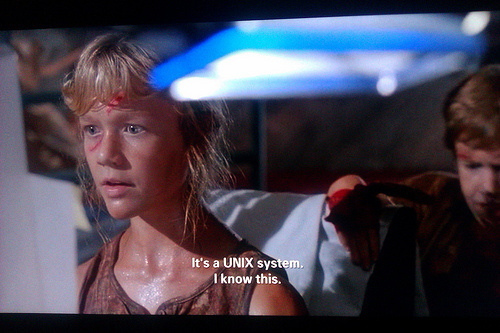There’s maybe 4 things I still need Windows for :
@work :
- Cherwell : Sevice Desk ticketing system (there’s a web client but it hardly ever works)
- Skype for Business : my employer doesn’t put phone handsets on desks - everyone uses Skype for Business telephony (while yes, there is a Skype version for Linux - this is NOT “Skype for Business”).
@home (and work) :
- CheckPoint SSL VPN
- Various products to remove DRM from e-books I purchase (the DRM removal plugin in Calibre won’t do this for any ebooks I’ve tried it on - not from Google Play, from Amazon Kindle or Rakuten Kobo)
For the stuff @work - I keep my employer supplied Win10 laptop on my desk, but mostly use my personal Ubuntu 19.04 hooked up to work’s docking station and dual monitor setup, and I used Symless “Synergy” KVM (which I purchased a full license for), anyway - I can drive Cherwell and Skype4Bu from my Linux laptop keyboard/mouse to the Win10 laptop using Synergy KVM (vers. 1.10.2). I’d like to wipe this Win10 laptop, and run Linux on it (it’s slightly better hardware-wise than the personal laptop I keep at work), looked at trying to use VMware converter to run my employer’s SOE/MOE Win10 as a guest, but that seems like a lot of work - and - last time I tried this (4-5 years ago) I ended up with an 80+ GB VMDK file - and NO way to shrink it.. I’d need to pretty much strip everything out of Win10, and force a defragment, to minimize the size of the VMDK - and don’t even know if that will work, with all the hooks this Win10 SOE/MOE has with EUFI, SecureBoot, HyperV (yeah Win10 itself actually runs inside some kinda HyperV hypervisor  - and as a hypervisor, HyperV is the worst
- and as a hypervisor, HyperV is the worst  ).
).
For the stuff @home -
I managed to get the CheckPoint SSL VPN client to work via CLI (I use an expect script to connect me) in Linux - but for who knows how long, if my employer patch the VPN software, it will probably break, and I’ll have to go back to using Windows 7 in a virtualbox VM and the ASPX client through Internet Explorer, and that REALLY SUCKS BALLS!
Removal of DRM from BOOKS I OWN - this really niggles me - I really HATE DRM, I think it’s evil, and I’ve never managed to get the DRM removal plugin in Calibre on Linux to “do anything” : so I need Windows only tools like ePUBee DRM Removal, Adobe Acrobat Digital Editions, Epubor Ultimate, “Any eBook Converter”, and “Kindle”.
For sharing files between Linux and Windows?
I use both Dropbox and Resilio Sync on both platforms. I keep ALL my data (photos, pictures [even screenshots], stolen memes, documents (including e-books), music, shell scripts) on either of those - never have to worry about partitions and filesystems… or even backups really…
That’s it… everything I might need MS Office for, I can do in Google Docs… I really kinda hate using Libre Office, so mostly avoid it… but I do use Libre Write when I need to update my CV in docx format, and that just seems to “work”…
All the Windows games I’d like to play, seem to work flawlessly in Proton via Steam Play (“special” version of Wine supported by Valve for gaming).
I used to spend a fair amount of time using CorelDraw (been using it since about version 3.x on Windows 3.0 circa 1991/1992) - but Inkscape performs just as well (one feature that Inkscape lacks, that Corel has, is multiple page documents). Never got my head around Adobe Illustrator.
I used to spend a similar amount of time using Adobe Photoshop… I’m no professional photographer or anything, and Gimp can do ANYTHING that I might have needed in Photoshop (I get sick of seeing people whining about no photoshop in Linux, I reckon probably 90% of these people probably only use about 15% of Photoshop’s features anyway! Sure there are professionals who NEED the whole Adobe Creative Suite [my daughter for example, she has a Macbook Pro for that]).
Actually - there’s one piece of software I’d love to see get ported to Linux : Autodesk Sketchbook! I run it on Android and iOS and I’ve tried it on Windows (and the “pro” version is now FREE everywhere)… This product was originally developed by the people at Alias/Wavefront, then owned by Silicon Graphics, a big Unix vendor - and I’m pretty sure there was a Unix version of Sketchbook for SGI Irix (their “UNIX” - i.e. the Unix that Lex discovers in Jurassic Park “It’s a UNIX system. I know this.” :
![]()

